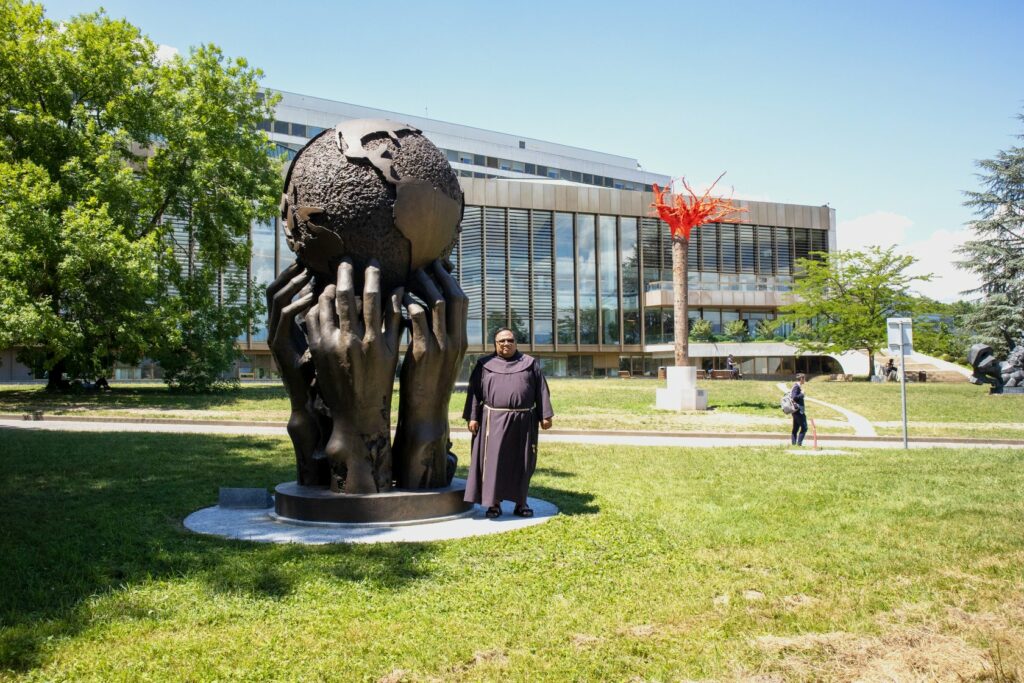With the election of President Marcos in May 2022, the Philippines has entered a new chapter in its troubled human rights history. The new administration took office after a controversial campaign marred by allegations of widespread disinformation and will have to decide how it deals with the legacy of President Duterte’s so-called ‘war on drugs’, in which tens of thousands of Filipinos became victims of extra judicial killings.
“I fear this election result will mean a continuation of the wars that the Duterte administration started: the war on drugs, the war on the marginalized, the war against fighting Covid-19,” says Brother Angel Cortez OFM, who visited Geneva during the 50th session of the Human Rights Council. “It puts the families of victims in a vacuum and will be a constant reminder of the pain of losing someone.”
As part of a civil society alliance that includes faith-based networks, Franciscans have been advocating for accountability for the violations committed under the Duterte administration. In the past, Brother Angel repeatedly addressed the UN Human Rights Council and diplomats in Geneva, providing updates from the ground and sharing the testimonies of victims.
These efforts contributed to an investigation published by the Office of the High Commissioner for Human Rights in 2020, which provides evidence of serious human rights violations, including killings, arbitrary detentions, as well as vilification of dissent. The report also noted the persistent impunity and formidable barriers for victims to access justice.
“We are still in a grieving process, but we also need to start working again with the people of the Philippines,” says Brother Angel. “We will continue our calls for an independent, international, investigation. We are also asking for human rights benchmarks based on the report by the High Commissioner, because the situation has actually worsened, rather than improved.”
The human rights situation in the Philippines remains precarious, especially for human rights defenders critical of the government. With domestic barriers to obtaining justice that are all but insurmountable, Franciscans will continue to raise this situation at the United Nations and advocate for an international investigation to address past violations and end the prevailing impunity in the country.

